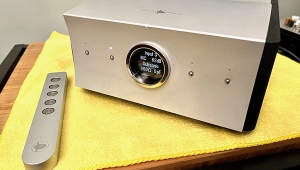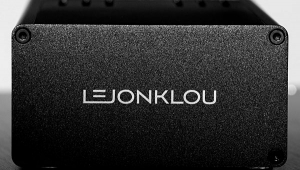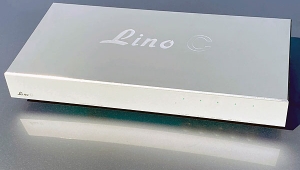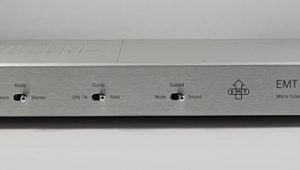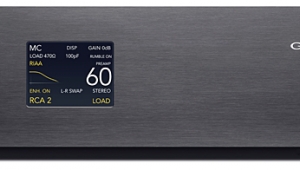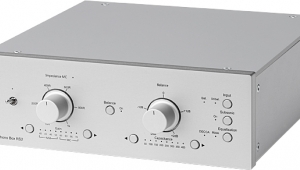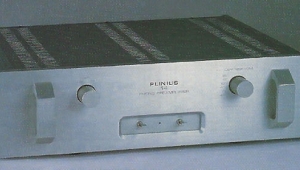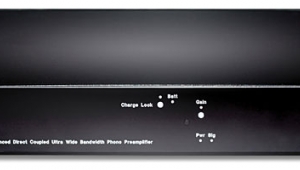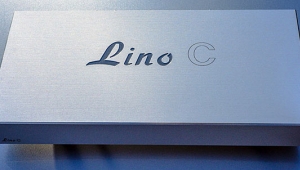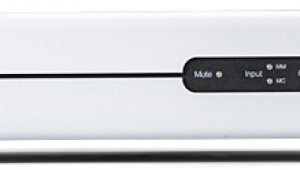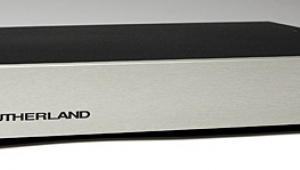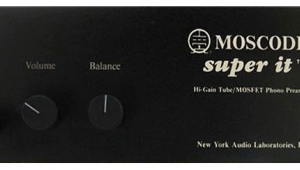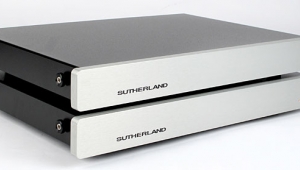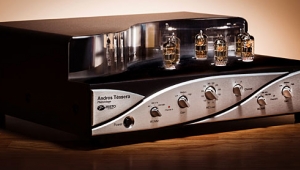| Columns Retired Columns & Blogs |
AcousTech Electronics PH-1 phono preamplifier
Audiophiles with budget restrictions (most of us, I imagine) could be forgiven for feeling we're afterthoughts to most manufacturers. Even though we probably keep most companies in business by buying their "entry-" or mid-level products, we're always hearing about products designed "without compromise." Waiter, could you bring the reality check, please?
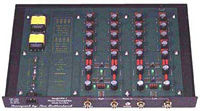 Even if you design a component without regard to the price tag, you still run into the compromises dictated by material science, or our collective ignorance, or even market pressures. (Although, with Asian economies in serious trouble, I'm betting we won't be hearing many manufacturers explaining "We just had to have a product that cost more than our old top-of-the-line in order to be taken seriously.")
Even if you design a component without regard to the price tag, you still run into the compromises dictated by material science, or our collective ignorance, or even market pressures. (Although, with Asian economies in serious trouble, I'm betting we won't be hearing many manufacturers explaining "We just had to have a product that cost more than our old top-of-the-line in order to be taken seriously.")
The $1500 Linn Linto and $1200 AcousTech PH-1 phono preamplifiers are both reasonably priced by current analog standards, but neither product comes with an attitude of "This is the best we could do for so little money." Quite the reverse: The Linn commemorates the 25th anniversary of the LP12, while the PH-1 is a love letter to analog posted by Acoustic Sounds' Chad Kassem and high-end designer Ron Sutherland. Both are serious high-end products that make no excuses. Or need to.
"Let's face it," said Ron Sutherland, "most people have to make some sacrifices to own anything that costs a thousand dollars. They should get something well built and well designed for their money. And, while it takes more time to design something intelligently, smart engineering doesn't have to cost more than an ugly solution to the same problem."
Ain't it grand to be taken seriously?
AcousTech Electronics PH-1
AcousTech is not a name most audiophiles would associate with equipment manufacturing. The firm is best known as the production arm of Analogue Productions—it handles the disc-mastering and record-pressing for the Kansas mail-order record retailer's own projects, such as the AP reissues of the Blue Note Miles Davis recordings or the Riverside Thelonious Monk tenor sessions.
But AP's owner, Chad Kassem, claims that the phono preamplifier was a project that was destiny's own—he and Ron Sutherland, founder and designer of Sutherland Engineering, were merely its midwives. As the two recall it, Sutherland dropped by AP to buy some CDs and was impressed by the sheer number of LPs available. He wound up at Kassem's house, where the voluble Chad played him disc after disc. The two were agreeing that it was a pity that high-quality phono preamps were so costly when Chad blurted out, "Ron, you should design an affordable phono section. I could sell a ton of 'em."
Sutherland had doubts. Sutherland Engineering products tended to be costly little jewels, virtually handcrafted from extremely expensive parts. It was unlikely that he could design a component that fit in with the rest of the Sutherland line for less than his $6800 PH-2000. However, the more Sutherland thought about it, the more possible it seemed that he could design a simple, affordable, high-quality phono preamplifier if it didn't have to match the units bearing the Sutherland marque.
"The price of the PH-2000 is a barrier for many people. I enjoy making cost-no-object designs, but consumers have got to have affordable products that offer quality sound, too—I've always had such respect for companies like Dynaco and products like the AR turntable, really good stuff that people could actually buy. That's what we wanted to do with the PH-1.
"Chad and I got carried away with this project. We spent a lot of time on every detail, the kind of time that might be more reasonable for a more expensive product—but engineering and up-front design expenses don't really add that much to the production cost of a component. The more time you spend on a project like this, the more you can come up with solutions that don't have to cost a lot."
The PH-1 doesn't seem like a product in which any corners were cut. It's heavy—with the steel cover on, it weighs close to 20 lbs. Peel the lid off and it's packed with high-quality components: 3/32"-thick circuit board; beefy, regulated power supply; an abundance of RC filtering on the mains; numerous electrolytic capacitors, as well as Wima polypropylene caps; Dale 1% resistors; and fast-switching diodes in the power supply. The circuit itself appears to be based on Burr-Brown OPA2134 op-amp chips.
- Log in or register to post comments
